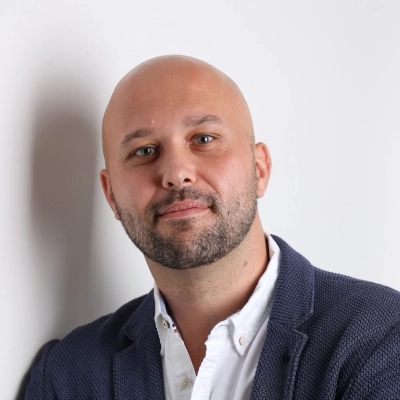5 How Personal Development Goals Helped Me Build Stronger Relationships
Personal development goals can have a profound impact on various aspects of life, including relationships. This article explores how focusing on self-improvement can lead to stronger connections with others, both personally and professionally. Drawing from expert insights, it delves into the ways personal growth enhances communication, fosters trust, and builds community.
- Building Community Through Personal Growth
- Enhancing Communication Skills in Electrical Work
- Embracing Uncomfortable Conversations for Stronger Bonds
- Active Listening Transforms Professional Relationships
- Leadership Growth Fosters Team Trust
Building Community Through Personal Growth
When I recognized that the emotional isolation in my tech career was affecting my well-being, I made the deliberate choice to pursue personal growth by developing an RV resort focused on creating community. This transition required me to identify which tasks drained my energy and outsource them, allowing me to dedicate more time to meaningful human connections. The resort has become a platform for building relationships with guests and collaborating with local artists in ways that would have been impossible in my previous role. By prioritizing my personal development goal of reducing loneliness, I've created a life filled with purposeful connections that enrich both my life and the lives of those who visit our community. The relationships I've built through this venture have become the most rewarding aspect of my professional journey, proving that aligning personal growth with relationship-building creates sustainable fulfillment.

Enhancing Communication Skills in Electrical Work
I'll give it to you straight. A few years ago, I realized my technical skills as a Level 2 Electrician were solid, but my communication with clients and my team wasn't where it needed to be. I could wire a complex metering system in my sleep, but explaining it in a way that built trust and clarity was a different story. So I made a personal development goal to improve my interpersonal and leadership skills. I invested in training, joined industry groups, and started actively listening more than I spoke.
The shift was immediate. On job sites, I stopped just "telling" and started actually "connecting." Instead of rattling off technical jargon, I learned to break it down so customers understood exactly what was happening, why it mattered, and how it benefited them. That built trust fast. Clients stopped seeing me as just a tradesperson and started seeing me as a partner in solving their electrical problems.
Within my team, the change was even bigger. I made it a habit to check in regularly, not just about the job but about how they were doing personally. That open line of communication meant fewer misunderstandings, smoother project flow, and a crew that actually enjoyed working together.
By focusing on my own growth, I created stronger connections with both clients and my team. Jobs ran more efficiently, repeat work increased, and referrals grew naturally. The technical work has always been my bread and butter, but the personal growth? That's what turned good working relationships into long-term partnerships.

Embracing Uncomfortable Conversations for Stronger Bonds
A few years ago, I set a personal development goal to lean into uncomfortable conversations instead of avoiding them, which ultimately helped me build much stronger and more meaningful professional relationships.
The goal stemmed from a realization that while I was strong in analysis and problem-solving, I struggled with direct confrontations when working with strong personalities. Instead of accepting it as "just who I am," I decided to actively work on it.
At first, it was difficult. My heart would race every time I had to disagree openly in a meeting.
The breakthrough came when I reframed the act of disagreeing. Instead of seeing it as conflict, I began to see it as an act of respect. My growth contributed to stronger connections because by voicing my perspective clearly and calmly, I was showing my teammates that I trusted them enough to be honest.
That foundation of trust is what turned tense moments into productive collaborations and built far more resilient and meaningful relationships.

Active Listening Transforms Professional Relationships
Committing to active listening as a personal development goal reshaped the quality of daily interactions. The focus shifted from preparing a response while someone was speaking to fully absorbing their words, tone, and nonverbal cues before replying. This change initially required conscious effort, especially in fast-moving conversations, but over time it became a natural habit.
As this skill developed, people began sharing more openly, often commenting that they felt genuinely heard. Misunderstandings decreased, and even difficult conversations unfolded with less tension because both sides felt respected. The growth was not just in communication technique but in patience and empathy, which created space for deeper trust. This intentional shift in how listening was approached strengthened existing relationships and opened the door to new ones built on mutual understanding.

Leadership Growth Fosters Team Trust
When I recognized the need for a major business shift, I implemented monthly soft skills and mindset calls with our senior staff that have continued for over two years now. These sessions focus on self-management, mindset development, and navigating challenging situations through open discussions about real problems we face. This regular commitment to personal growth has significantly strengthened my relationships with the leadership team, creating a culture where we can be vulnerable about challenges and support each other's development. The trust and deeper connections that emerged from these sessions have been invaluable to our collective success and individual growth journeys.


